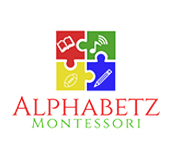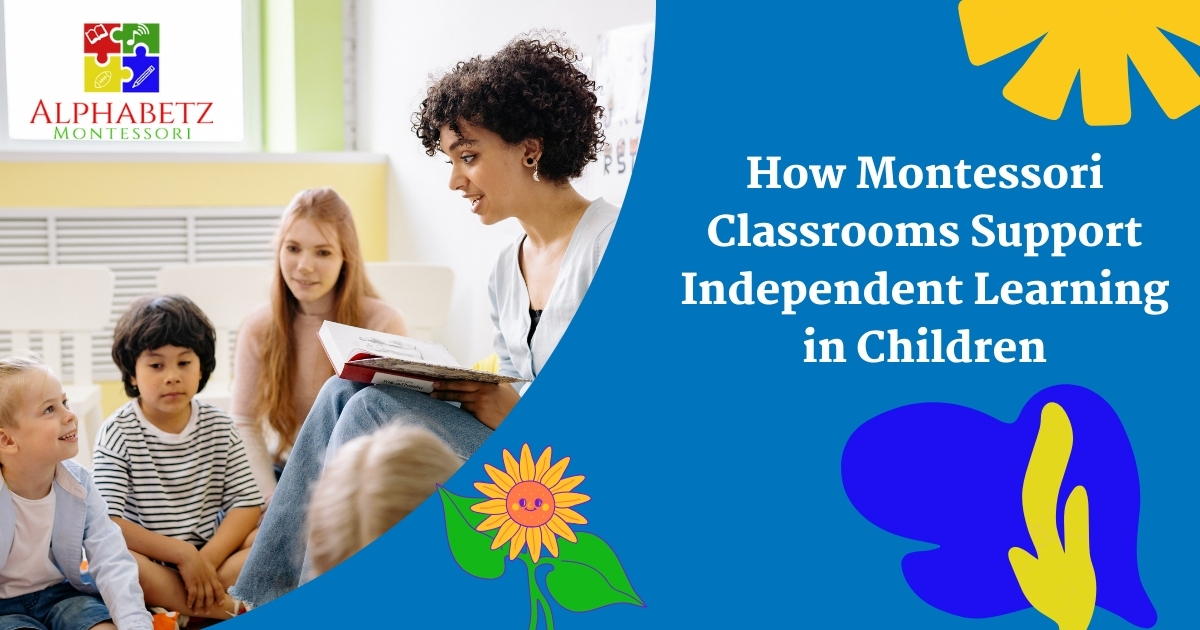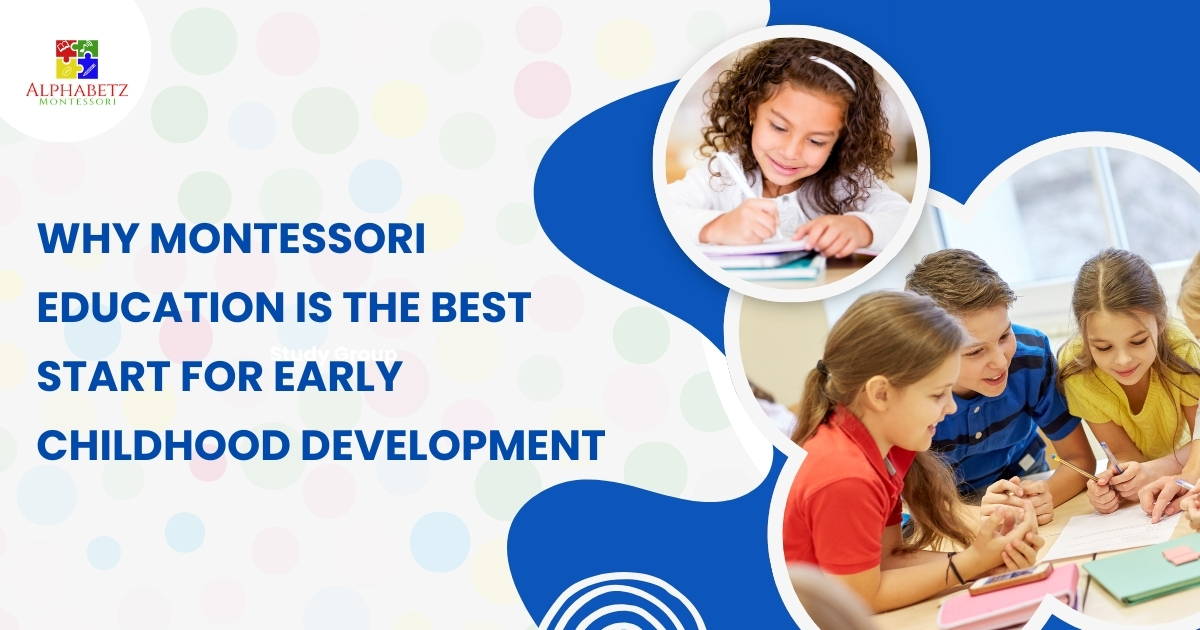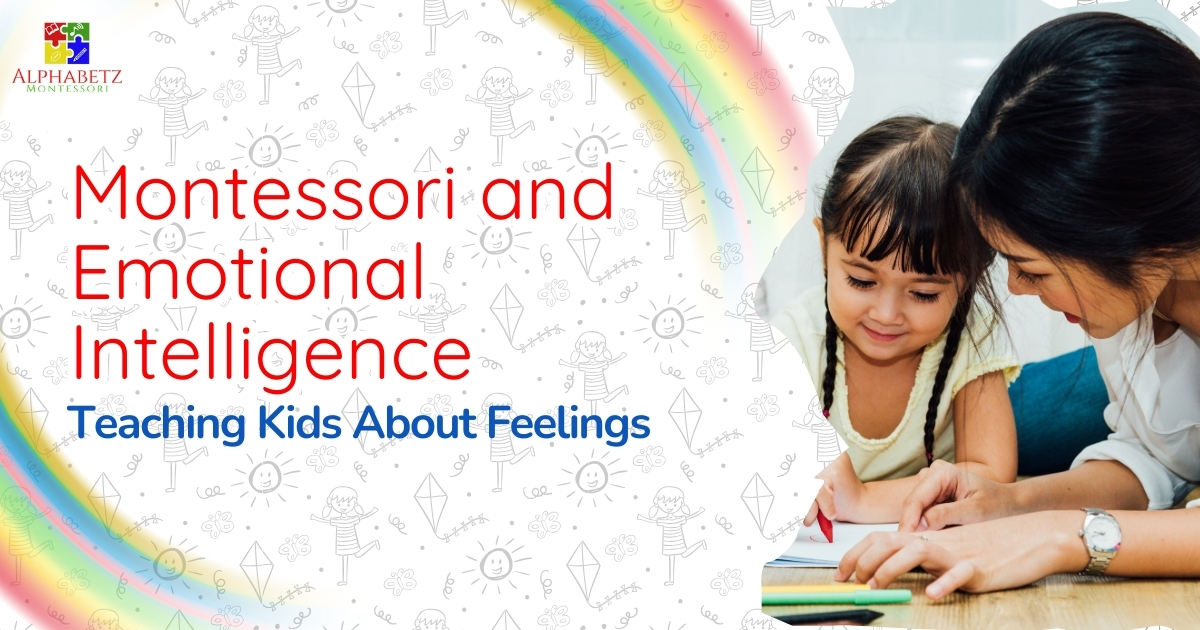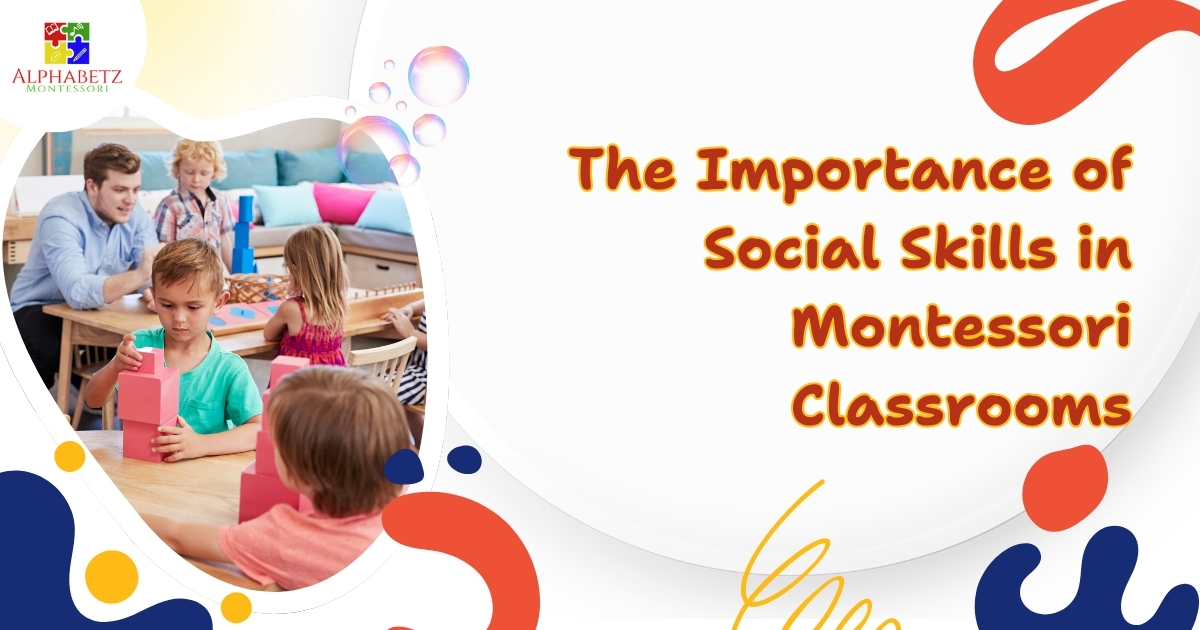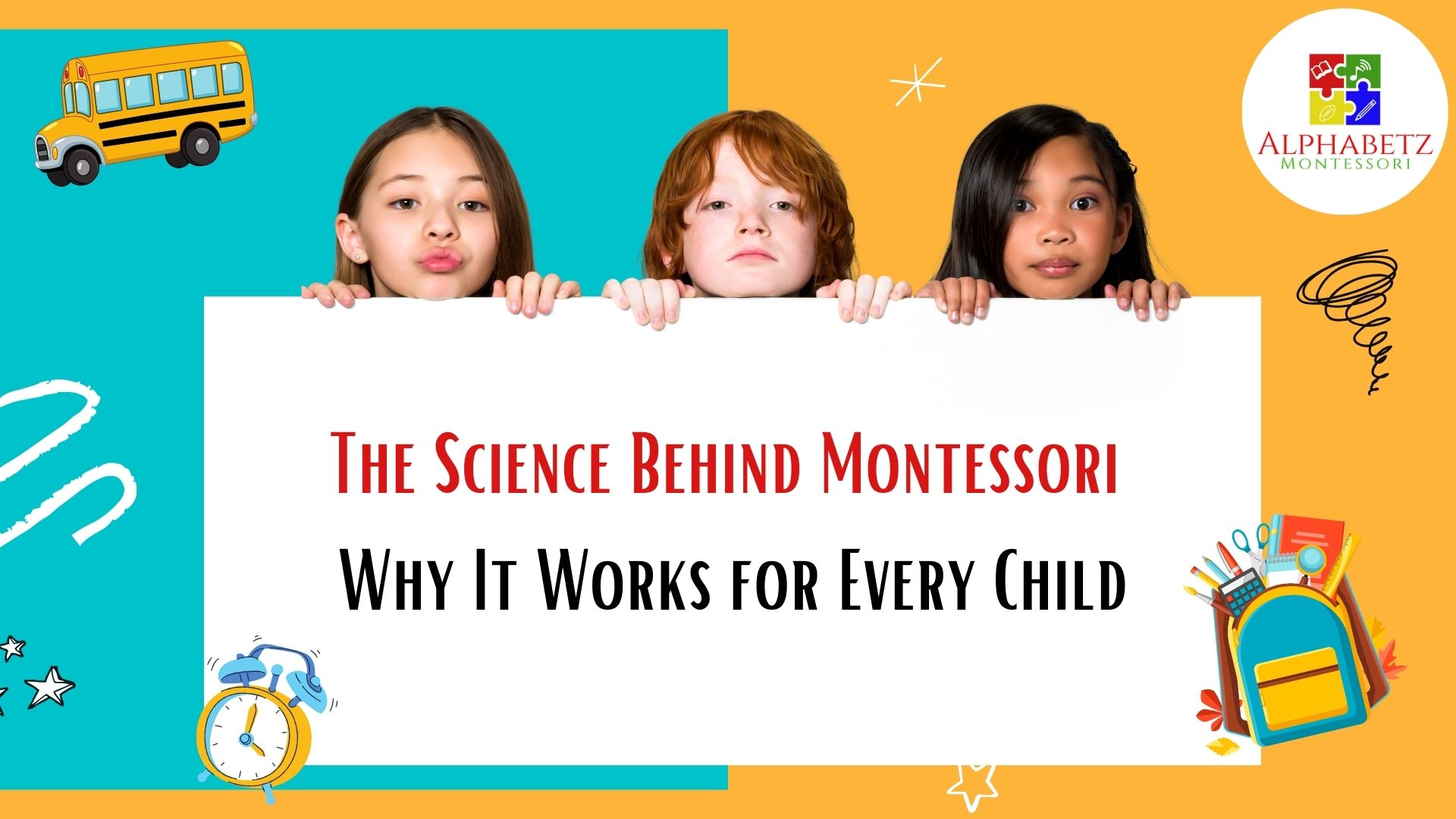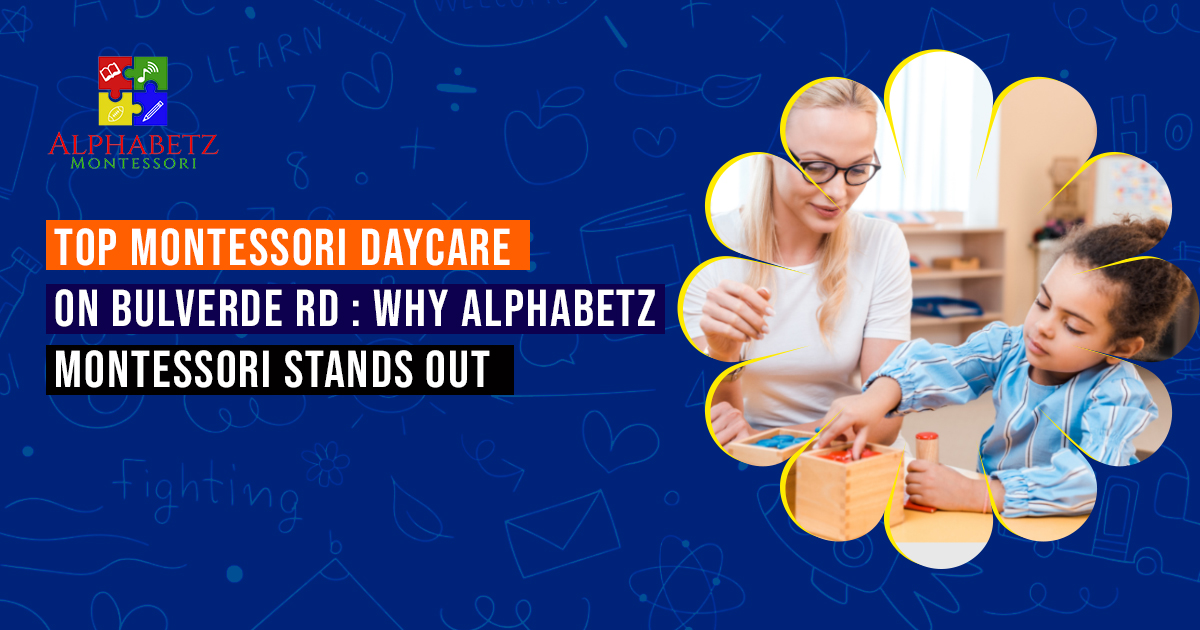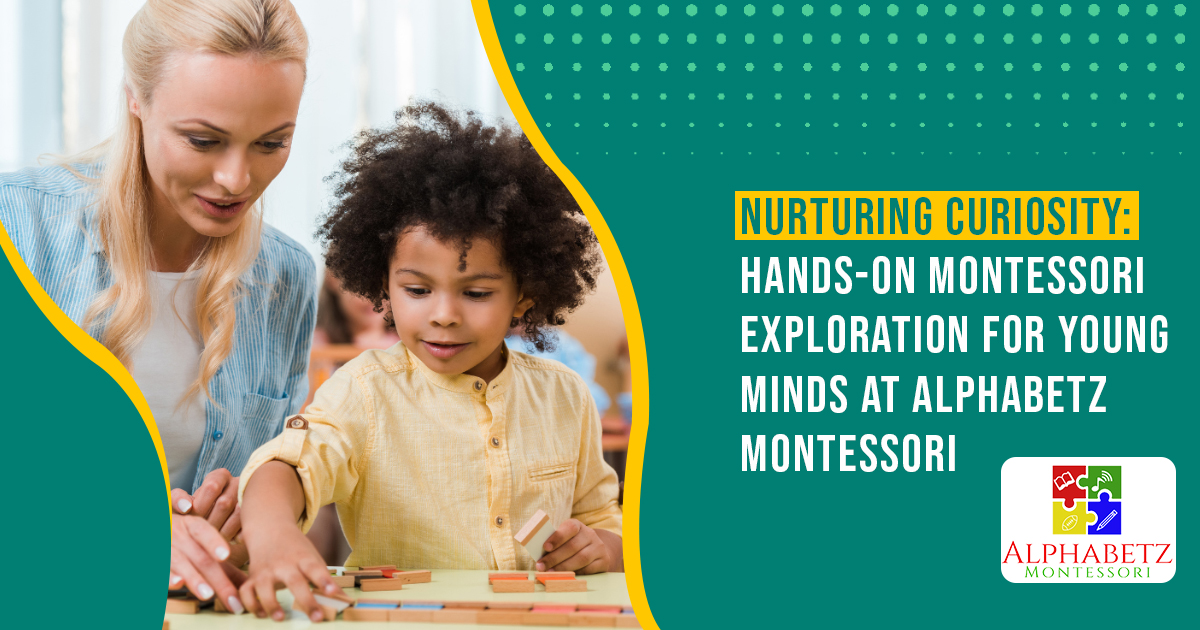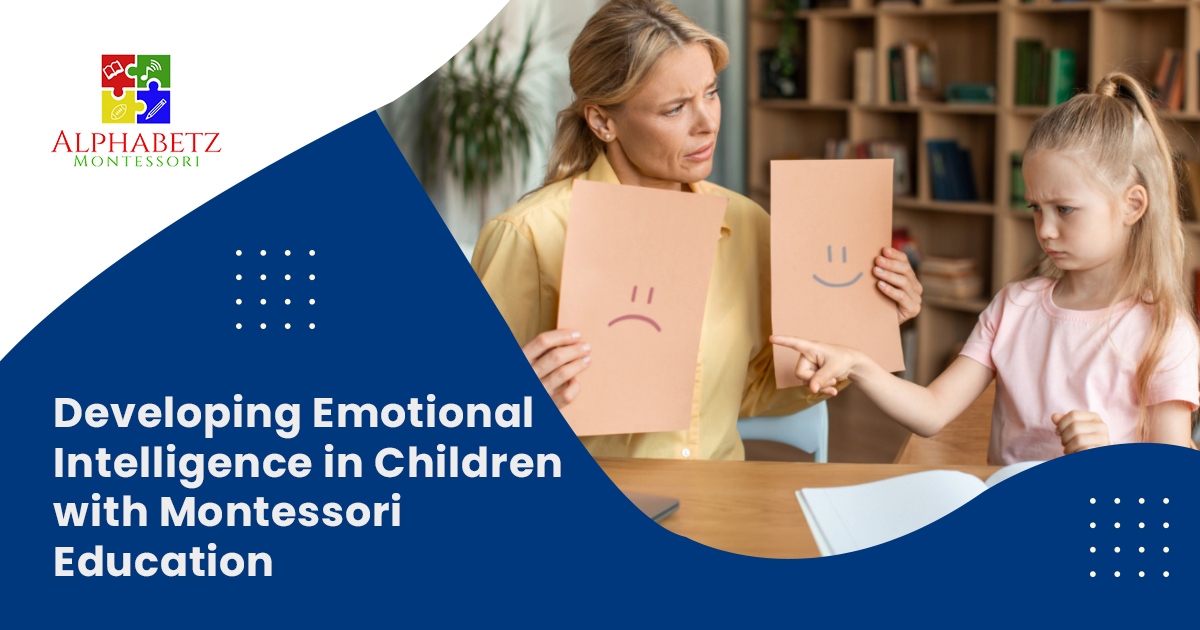Explore insights on child development at Alphabetz Montessori. Discover effective strategies and tips to nurture your child’s growth and learning journey.
Independent learning is one of the most valuable skills a child can develop during the early years. It builds confidence, critical thinking, self-discipline, and a lifelong love of learning. Montessori education is uniquely designed to nurture independence by respecting each child’s natural curiosity and ability to learn at their own pace. In a Montessori classroom, independence is not forced it is carefully guided and encouraged every day. A Child-Centered Learning Environment Unlike traditional classrooms where…
Choosing the right early childhood education program is one of the most important decisions parents make for their child. The early years are a critical time for brain development, emotional growth, and building lifelong learning habits. Montessori education has gained global recognition as one of the most effective approaches for supporting holistic early childhood development. At Alphabetz Montessori, we believe Montessori provides the strongest foundation for children to grow into confident, independent, and capable learners.…
In early childhood, learning is not limited to letters and numbers. One of the most important foundations for lifelong success is emotional intelligence (EI) the ability to recognize, understand, and manage one’s own emotions while developing empathy for others. At Alphabetz Montessori, emotional development is thoughtfully woven into everyday learning, helping children grow into confident, compassionate, and self-aware individuals. What Is Emotional Intelligence in Early Childhood? Emotional intelligence includes skills such as identifying emotions, expressing…
In today’s world, academic knowledge alone is not enough to help children thrive. Social skills such as communication, empathy, cooperation, and respect play a crucial role in shaping a child’s overall development. Montessori education recognizes this early on and intentionally creates an environment where social growth is just as important as academic learning. At Alphabetz Montessori, social skills are nurtured naturally through everyday interactions, collaborative activities, and a thoughtfully prepared classroom environment. A Community-Based Learning…
In today’s fast-paced world, parents are constantly searching for the best education for their children—one that nurtures creativity, fosters independence, and instills a lifelong love of learning. Montessori education has been a time-tested, research-backed approach that provides all of this and more. But what exactly makes Montessori so effective? Let’s explore the science behind Montessori education and how Alphabetz Montessori brings these principles to life, offering your child the best start to their academic journey.…
Finding the right childcare for your child can be one of the most significant decisions you’ll make as a parent. It’s about finding a place that fosters your child’s natural curiosity and development, where they’re safe and encouraged to grow emotionally, socially, and intellectually. Located on Bulverde Rd, Alphabetz Montessori provides an exceptional Montessori-based daycare experience that differentiates it from other early childhood education centers in San Antonio, TX. This article will explore what makes…
In today’s fast-paced world, parents are constantly searching for educational methods that promote the holistic development of their children. Alphabetz Montessori, a leading institution for Montessori in San Antonio, stands out as a unique and effective approach that focuses on hands-on learning and nurturing curiosity in young minds. With more families exploring Montessori options, it's important to understand how this method works and why it's beneficial for children, particularly during their formative years. What is…
Building a Strong Foundation for Life At Alphabetz Montessori, we believe in nurturing the whole child. This goes beyond just academics and encompasses the crucial development of emotional intelligence (EQ). In today's world, EQ is just as important, if not more so, than IQ for success. Here's how the Montessori method, a leader in Montessori preschool education, fosters emotional intelligence in children: 1. Building Self-Awareness: The Cornerstone of EQ The Montessori classroom, designed for Montessori…
Raising a curious infant is akin to being an explorer's guide, navigating through a world brimming with wonder and discovery. As caregivers, our role is not just to safeguard this journey but to enrich it, ensuring that every little exploration is both safe and stimulating. This blog delves into the art of fostering curiosity in infants, ensuring their adventures are as secure as they are enlightening. Setting the Stage for Safe Discovery Creating a secure…
In the rapidly evolving landscape of education, the fusion of technology with traditional hands-on learning approaches heralds a new era for child development. This blend, which we'll call "Tech-Tactile Learning," is not just about keeping up with the digital age but enhancing the educational journey of our youngest learners in profound ways. Let's delve into how this innovative approach is reshaping the way children learn, play, and grow. The Rise of Tech in Tiny Hands…
